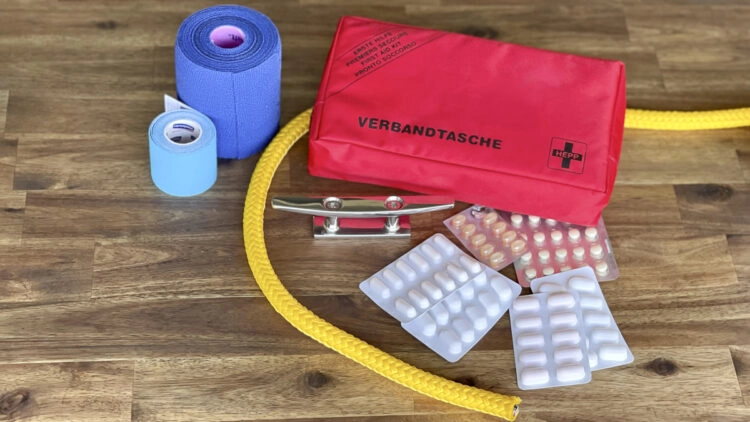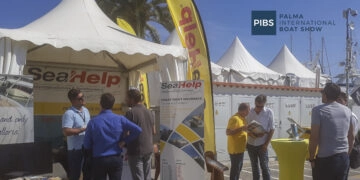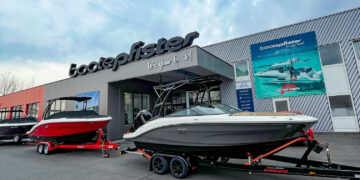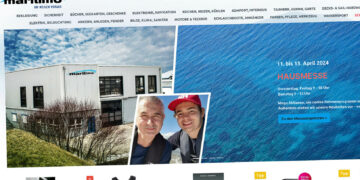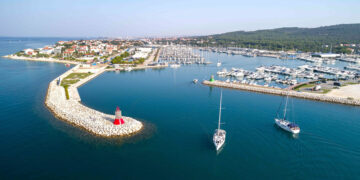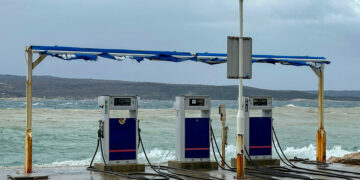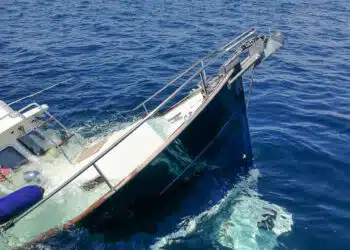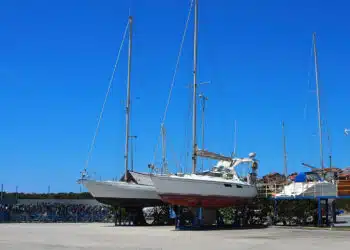Some claim that it is the most important piece of luggage on board a (sailing) boat: the first-aid kit. Our skipper tip from the SeaHelp editorial team explains which medicines are important at sea and why the first-aid kit is an important part of preparing for a trip.
What to do if an injury occurs during a cruise, a crew member gets seasick or symptoms of illness appear? One should already be aware at the start of the cruise that there is no pharmacy within reach for days or even weeks at sea, and that medical assistance cannot be called upon either.
Therefore, every skip (and also every crew member) should ensure the presence of a professional basic medical equipment on board when planning the upcoming cruise. A good basic equipment can be a first aid kit, as it is prescribed for passenger cars. However, the on-board first aid kit should contain more, because specific dangers lurk at sea that should be covered: in particular seasickness, sunburn can occur, but also diarrhea, insect bites, skin abrasions, bruises or contusions can happen.
Medication selection: Family doctor and pharmacist provide professional advice
In the selection and procurement of medications (which should be tailored to each crew member individually), help family doctor and pharmacist. Attention: partly the medicines are prescription. In general, you are already on the safe side, if medicines are carried, which help against: seasickness, all kinds of gastrointestinal complaints, fever, pain, infectious diseases and itching and skin burns (sunburn).
In addition, a well-stocked first-aid kit should include: Bandages, compresses, cooling pads (remember to keep them in the refrigerator compartment if available), scissors, tweezers, iodine, clinical thermometer, blood pressure monitor, band-aids, various antibiotics (note any incompatibilities), sterile disposable gloves, emergency blanket.
It should be noted that these are only recommendations; the individual needs of fellow sailors are to be considered and clarified before the start of the trip, long-distance sailors will need an extended on-board pharmacy, and who is traveling in warm areas should, for example, check the tropical suitability of the drugs (let) and carry if necessary means for malaria prophylaxis.
In case of doubt, the safety guidelines of KA and GL apply
When in doubt, the on-board pharmacy should be equipped according to the safety guidelines of the Cruiser Department or Germanischer Lloyd, as these are staggered into different sized sailing areas. Again, the scope and selection must be adapted to the individual needs (and age structure) of the crew. Under no circumstances should the existing on-board pharmacy prevent fellow sailors from carrying their personally required medications.
And – not only the correct filling, but also the correct storage of the on-board pharmacy should be observed: here, storage in a cool and dry (and preferably also water-protected) place is recommended. Nevertheless, every sailor should be able to reach the first-aid kit quickly (and know where it is). If children are on board, it should be ensured that they cannot easily reach/open the box. A flashlight nearby can also be useful.
You are on the safe side if you leave the medications in their original packaging. Then the best before date can be checked and after expiration medications can be easily replaced. Also make sure to leave the package inserts with the medications. This way, questions about use, dosage and side effects can be clarified in case of an emergency.
Important: appropriate vaccination protection of all crew members depending on the cruising area
In addition to a well-stocked on-board pharmacy, attention should also be paid to appropriate vaccination protection for all crew members. Depending on the vacation country, certain vaccinations may be useful and / or mandatory – best to inform beforehand and refresh, so it is ensured that you are protected on site. In case of doubt, a doctor or the tropical institute will advise you.
In this context, special attention should be paid to the topic of Covid – ideally, all crew members were double vaccinated against Corona in time before the start of the cruise (i.e. at least two weeks before) or can document a survived infection, and the sailors have a fresh (negative) test with them.
For SeaHelp Premium members: free telemedical support
If an accident, injury or symptoms of illness occur to one of the crew members on board, every minute can count in an emergency. Until medical care is secured, an emergency paramedic will assist by phone. This telemedicine support is included and free for Premium SeaHelp members.


